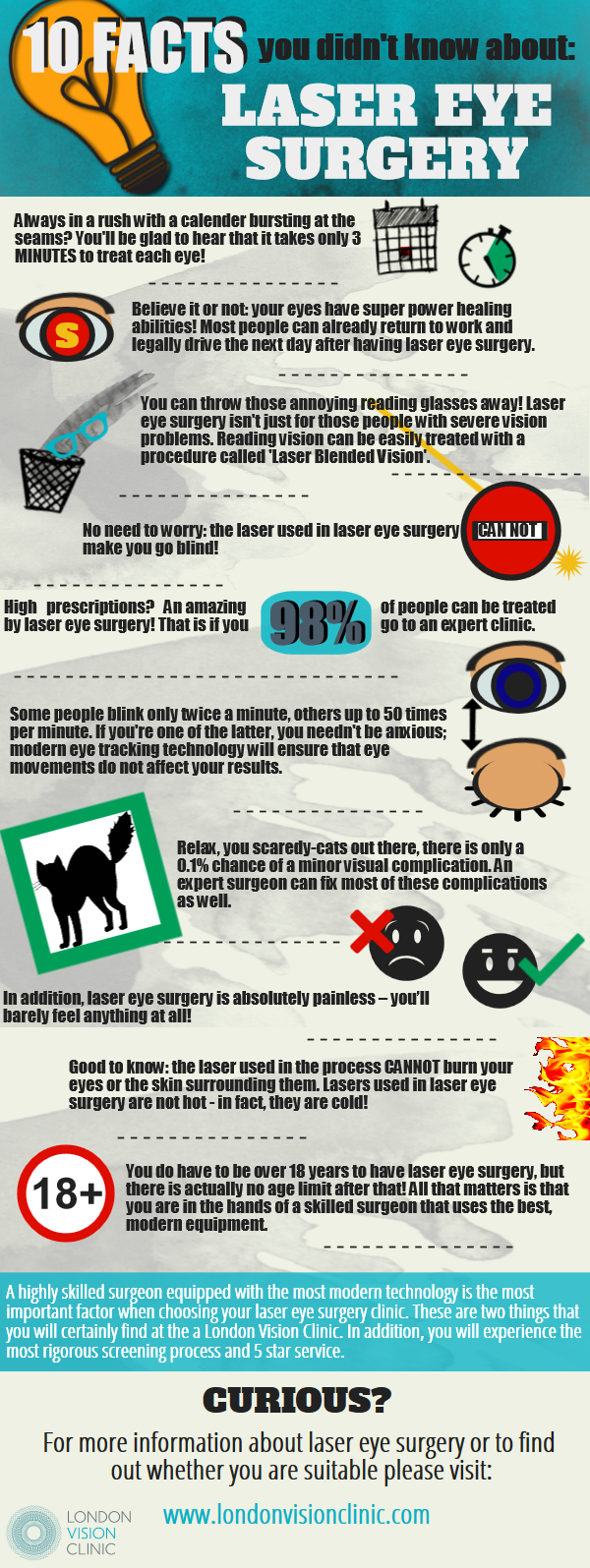Is SMILE Eye Surgery Appropriate For You? Important Variables And Insights To Consider
Article Developed By-Lundgreen Thestrup If you're considering SMILE eye surgical procedure, contemplate this: are you prepared to embrace possible aesthetic freedom, or does the idea of any kind of threats make you be reluctant? Your choice will rest on a cautious balance of weighing the advantages versus the unpredictabilities. It's vital to dig much deeper right into the subtleties of SMILE surgical procedure to make an enlightened choice that straightens with your visual objectives.
Recognizing SMILE Eye Surgery
When thinking about SMILE Eye Surgical procedure, it is necessary to understand the treatment and its benefits. SMILE, which stands for Small Laceration Lenticule Extraction, is a minimally intrusive laser eye surgical treatment that fixes usual vision problems like myopia (nearsightedness). Throughout the procedure, your eye specialist will certainly make use of a femtosecond laser to develop a tiny laceration in your cornea. Via this incision, a small disc of cells called a lenticule is gotten rid of, improving the cornea and remedying your vision. One of the key advantages of SMILE Eye Surgical treatment is its fast recovery time. Many clients experience boosted vision within a day or more after the procedure, with minimal discomfort. Additionally, SMILE is recognized for its high success rate in giving lasting vision correction. Unlike LASIK, SMILE doesn't call for the production of a flap in the cornea, lowering the threat of issues and enabling a much more stable corneal structure post-surgery. Comprehending the treatment and its benefits is important when considering SMILE Eye Surgery for vision improvement.
Benefits and drawbacks of SMILE
Taking Into Consideration SMILE Eye Surgical treatment for vision modification comes with different advantages and prospective downsides. One of the primary pros of SMILE is its minimally invasive nature, as it involves a small incision and normally causes quick recuperation times. The procedure is likewise recognized for causing minimal pain and dry eye signs post-surgery contrasted to various other vision correction approaches. In addition, SMILE has actually been shown to give superb visual end results, with numerous clients accomplishing 20/20 vision or better. On the other hand, a prospective disadvantage of SMILE is that it might not appropriate for individuals with severe refractive errors, as the treatment array is rather restricted contrasted to LASIK. One more factor to consider is that the learning contour for cosmetic surgeons carrying out SMILE can influence the schedule of knowledgeable suppliers in certain areas. It is very important to evaluate these pros and cons meticulously when determining if SMILE is the best selection for your vision correction needs.
Identifying Qualification for SMILE
To establish if you're qualified for SMILE eye surgery, your ophthalmologist will conduct an extensive evaluation of your eye health and wellness and vision needs. During simply click the up coming web site , aspects such as the security of your vision prescription, the density of your cornea, and the overall health and wellness of your eyes will certainly be analyzed. Generally, candidates for SMILE more than 22 years of ages, have a steady vision prescription for a minimum of a year, and have healthy corneas without problems like keratoconus. Your ophthalmologist will certainly also consider your total eye wellness, any type of existing eye conditions, and your way of living needs to determine if SMILE is the best option for you. It's vital to interact any type of specific aesthetic needs or problems you may have throughout this analysis to guarantee that the treatment lines up with your expectations. If you aren't eligible for SMILE, your eye doctor may recommend different vision modification choices that much better match your private demands and eye health and wellness status. Final thought Ultimately, deciding whether SMILE eye surgical procedure is right for you needs cautious factor to consider of your individual eye health and aesthetic requirements. Consult with your eye doctor to identify your qualification for the procedure and consider the prospective advantages and downsides. Bear in mind to communicate any type of concerns or inquiries you might have throughout the assessment process to make an educated decision about your vision modification options. 